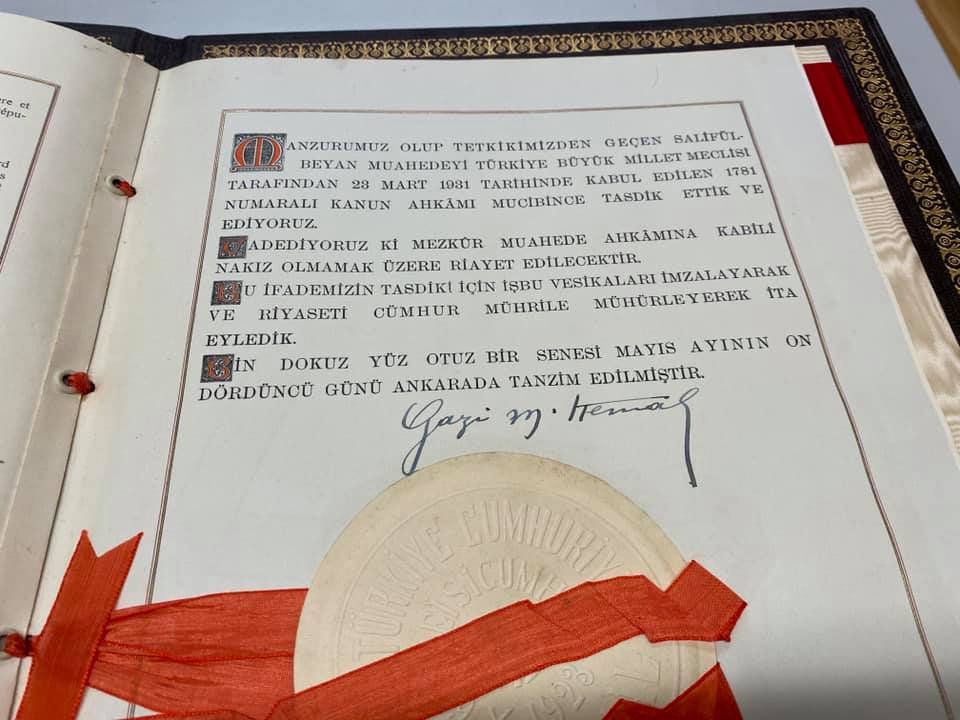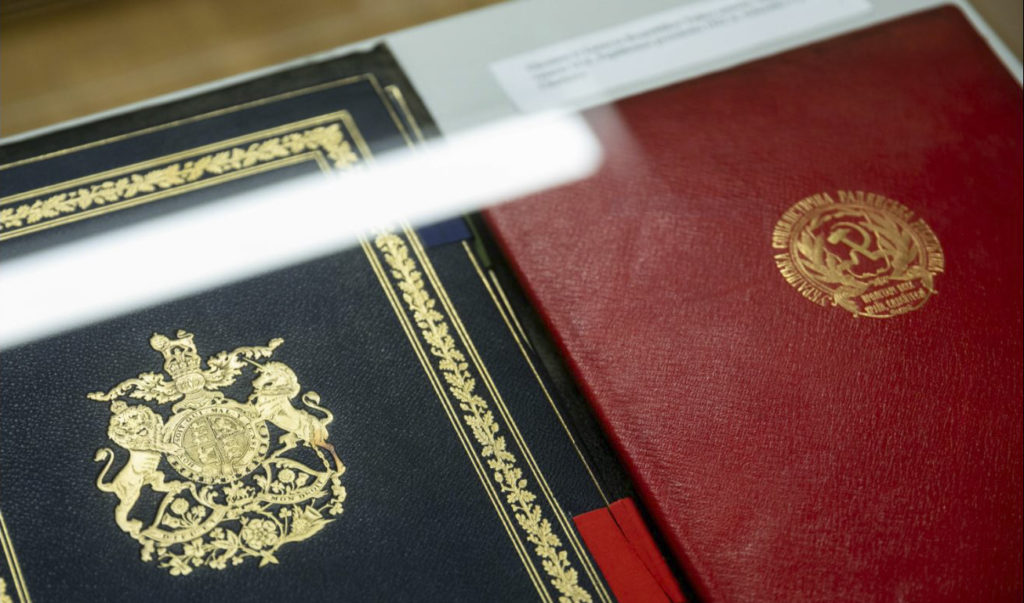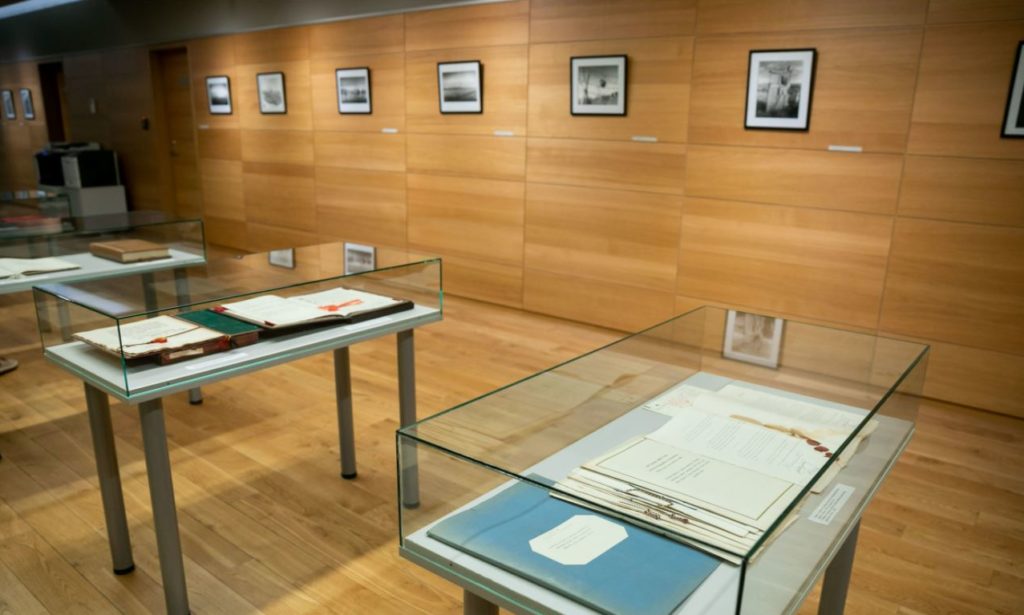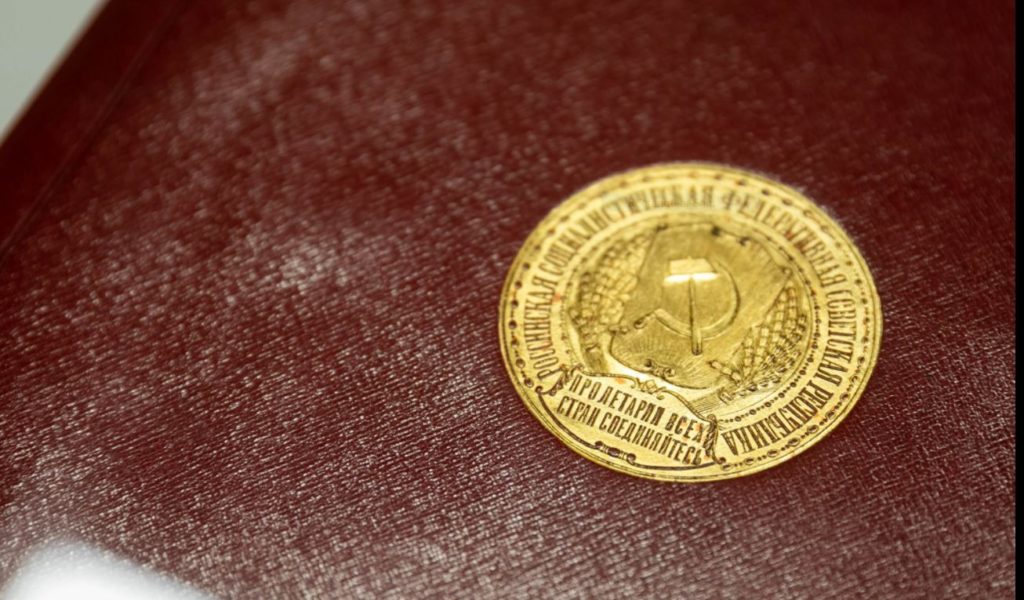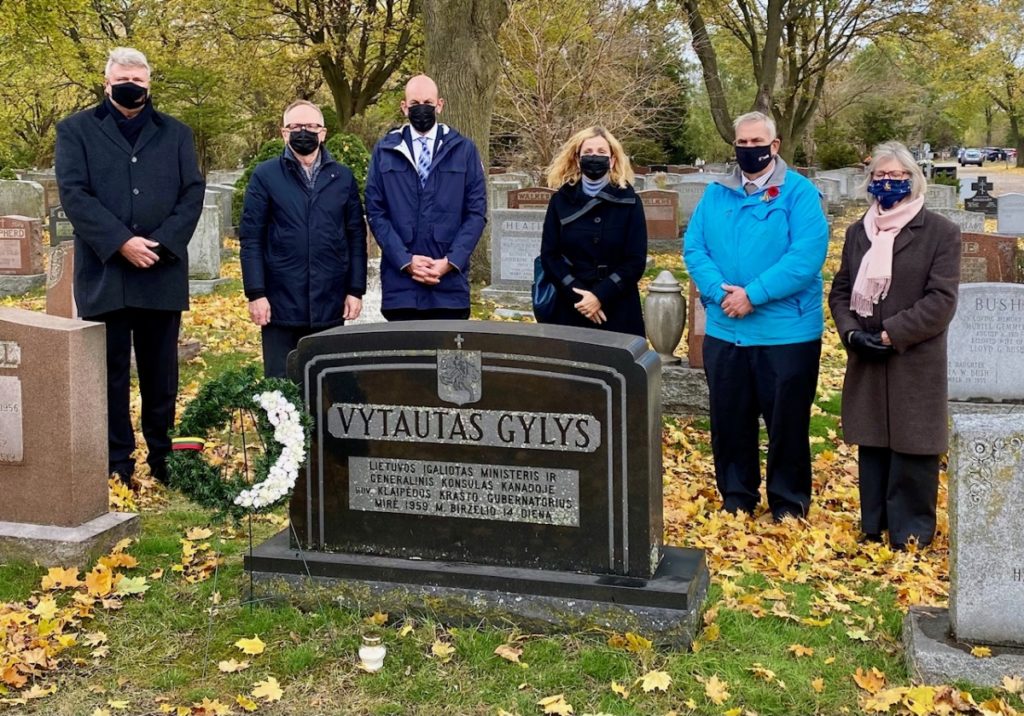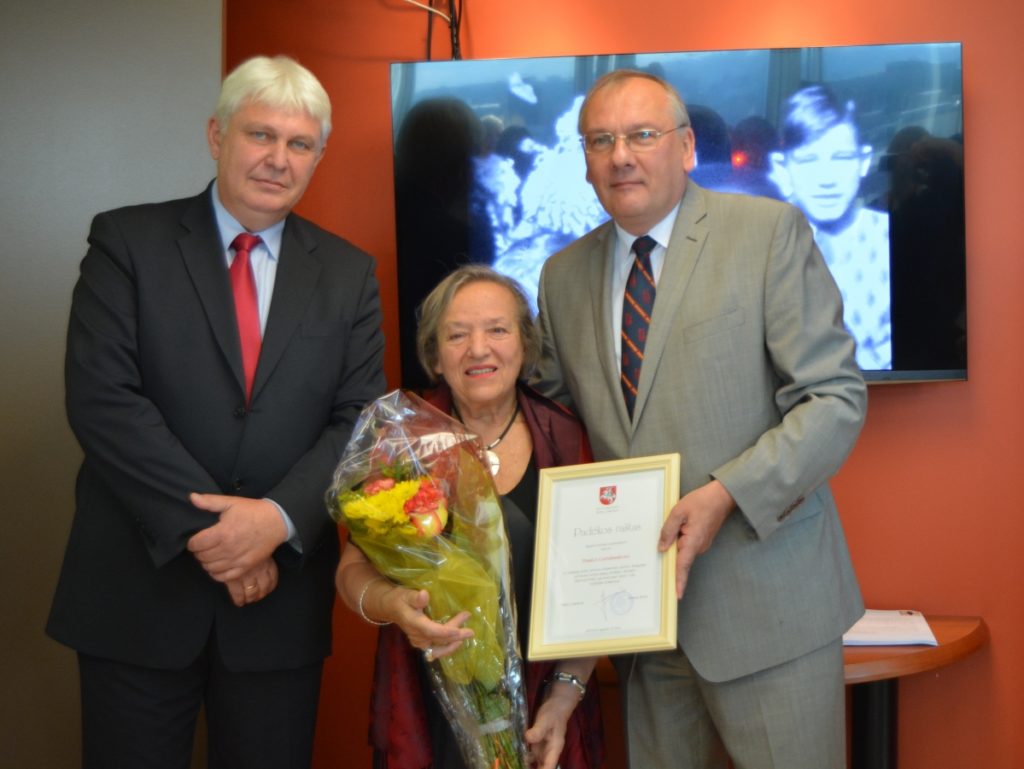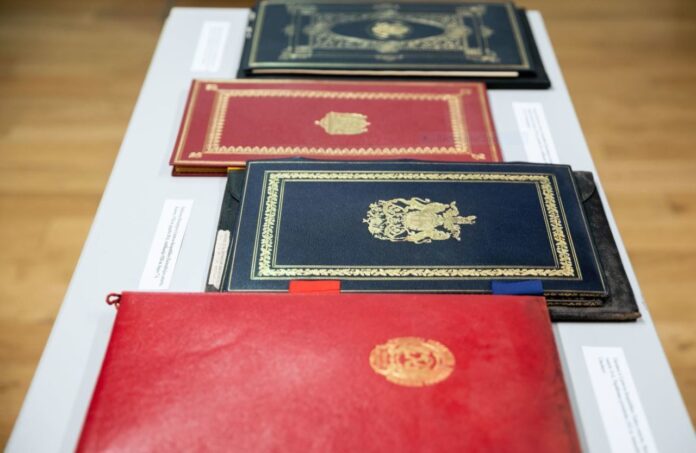
This is the Year of Archives in Lithuania, to be remembered for an extraordinary event: the recovery of international agreements of the Independence period
On July 1, at a ceremony at the Ministry of Foreign Affairs, the Lithuanian Central Archive received vital archival documents from the Independence period 1918-1940, missing for 80 years. They had been saved from destruction by the Lithuanian Consul-General in Canada, Vytautas Jonas Gylys.
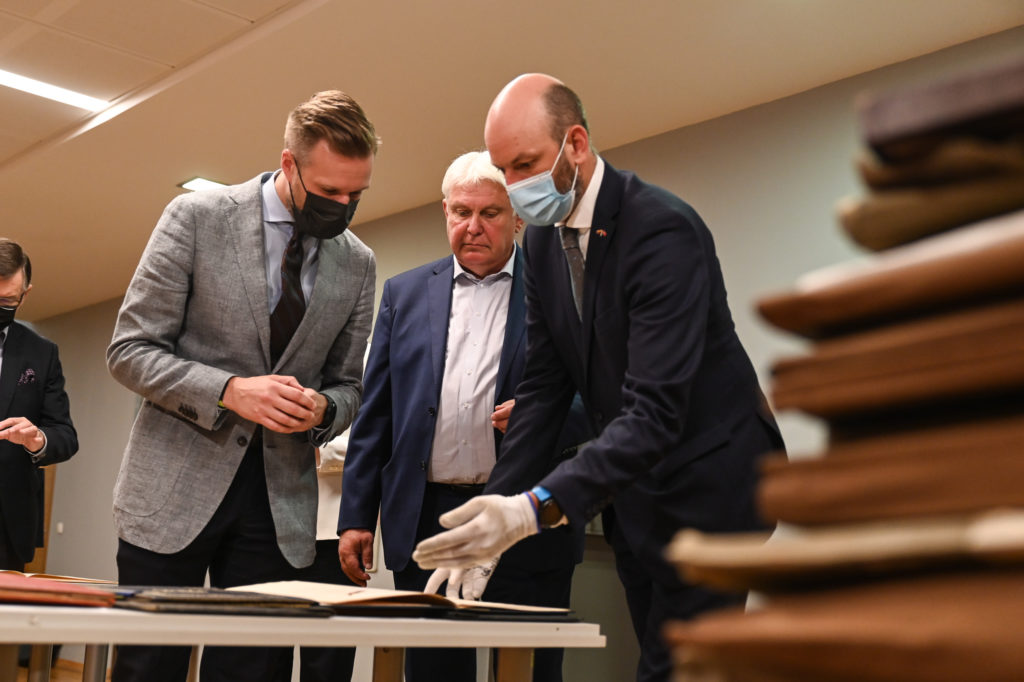
These documents were found in Canada and transported to Lithuania at the end of June, 2021. According to the Lithuanian ambassador to Canada Darius Skusevičius, the recovery of this archive was the result of a coincidence, and the good will of those involved. Thanks to them, we have concrete evidence of our diplomatic history, and can ensure the safekeeping of these documents for future generations.
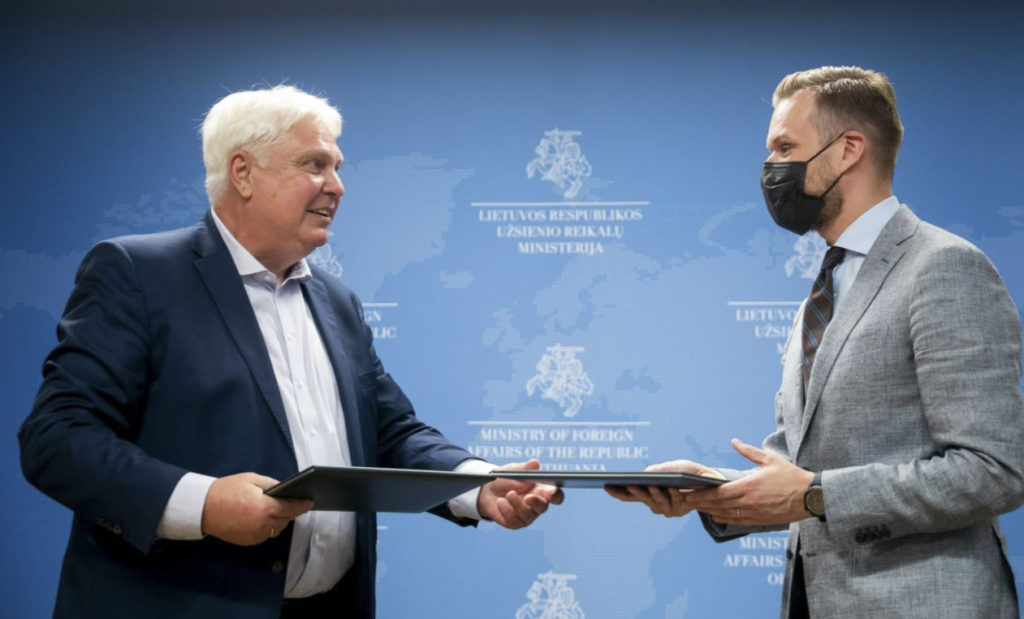
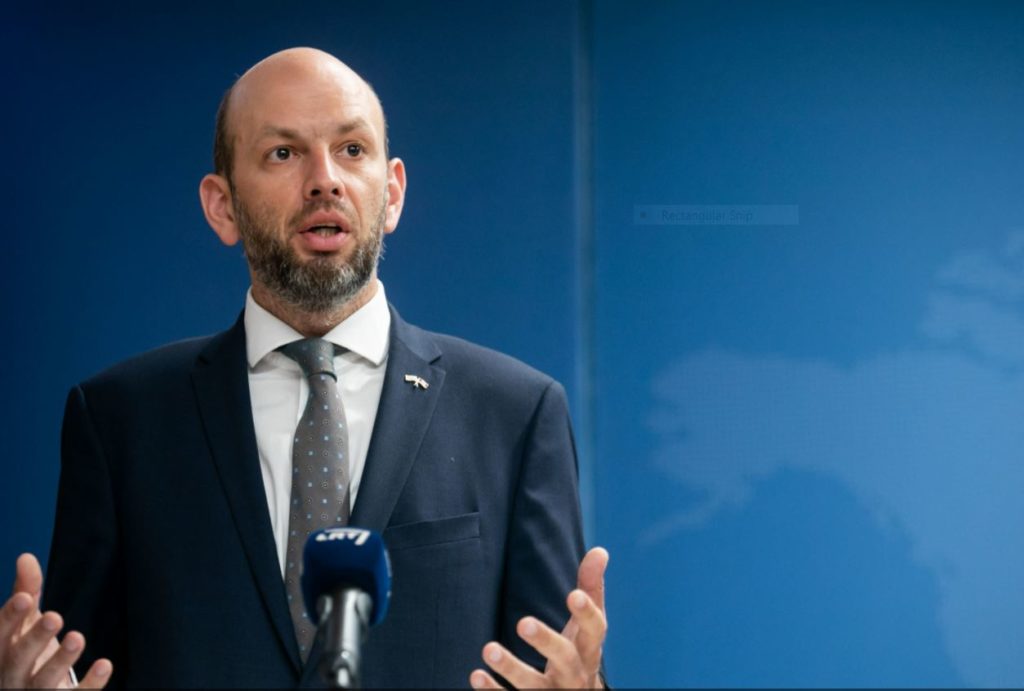
Director of the Lithuanian Central Archive Dalius Žižys called it a great success story and a huge gift to the archives of Lithuania, and it is symbolic that they were recovered this year, the Year of Archives. These documents contain the prehistory of Lithuanian foreign policy.
Among the documents are the original copies of international agreements such as the Lithuanian-Soviet Russian Peace Treaty, agreements made with Latvia between 1922 and 1925, the Cooperation Accord (Baltic Entente) signed by Lithuania, Latvia and Estonia in 1934 in Geneva, and many others. The agreements have the original signatures of witnesses such as German president Paul von Hindenburg, US presidents Franklin Delano Roosevelt and Calvin Coolidge, Czech president Edvard Benes, Pope Pius XI, Latvian president Alberts Kviesis, and Soviet Russian leader Vladimir Ulianov Lenin.
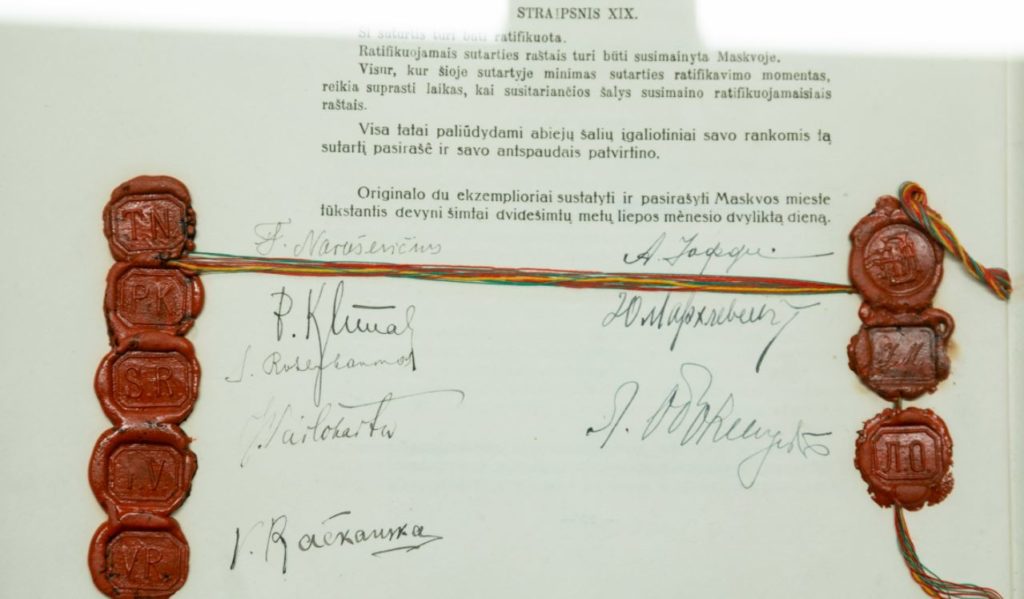
The Lithuanian Embassy in Canada was instrumental in returning the documents kept since the beginning of World War II by Vytautas Jonas Gylys, several private individuals and the Lithuanian Canadian Community.
The journey of these documents from Lithuania to Stockholm and from there to Toronto is a historic-diplomatic detective story, and the topic of an article by Raimundas Klimavičius published in Kultūros barai and later in Tėviškės žiburiai (2020, No. 2-3, „Dingę tarp Stokholmo ir Toronto“ – see spauda.org).
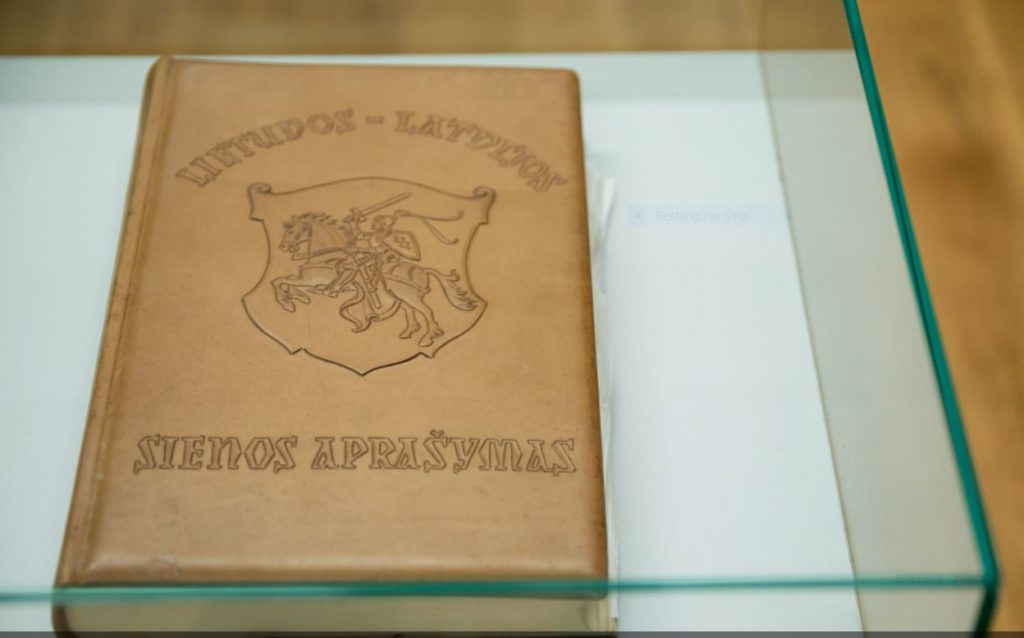
Vytautas Jonas Gylys (1886-1959) was a Lithuanian diplomat, ambassador of Lithuania to Finland, Kaliningrad, Latvia, Denmark, Great Britain, and Sweden. He was also the Governor of the Klaipėda Region from 1932-1934. From 1949 until his death, he was the Lithuanian Consul-General in Toronto, where he is buried. In 2014 the Lithuanian Embassy in Canada (with Dr. Vytautas Žalys as ambassador at the time), initiated an exhibition about Gylys and his work at the Lithuanian Museum-Archives of Canada, sponsored by the Lithuanian Foreign Ministry and the Lithuanian Canadian Foundation. Director of the Lithuanian Central Archive Dalius Žižys was in attendance at the opening ceremony, and presented a letter of thanks from the Ministry of Culture to Toronto sponsor Danutė Garbaliauskienė, who knew the Gylys family and had donated several historical artifacts for the exhibition. They were later given to the Central Archive and the Lithuanian National Museum.
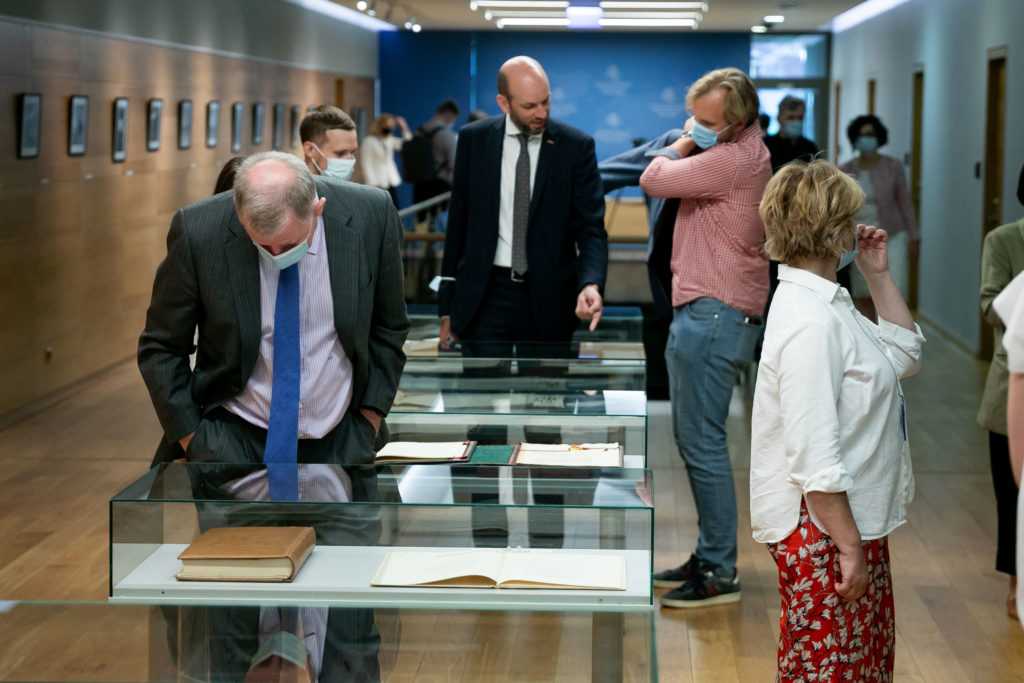
Lithuanian historians had long searched for the international treaties, and tried to track their disappearance from Stockholm after 1939. There were three boxes of them, weighing about 50 kilograms, according to historian Dr. V. Žalys. When the USSR took over the Lithuanian embassy in Stockholm in 1940, Gylys had managed to squirrel them away in a secretly rented apartment. In 1949 Gylys moved to Toronto, taking the documents with him. Dr. Žalys confirmed that the agreement with Soviet Russia is the most significant, because its first article revoked all USSR rights to Lithuania.
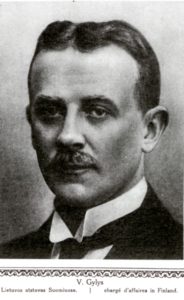
Ambassador Darius Skusevičius expanded on the discovery of the documents on his Facebook page. In summary, when Gylys died, his widow, Vanda, kept the documents. In May of this year, the Lithuanian Museum-Archives received a call from a Canadian, Charles Hopkins. He was Vanda Gylys’ neighbour, who knew the family’s history. After she died, he salvaged boxes of documents which were being discarded before the sale of the widow’s house. He felt they might be important, and kept them in his basement. After Lithuania declared independence, he attempted to reach potentially interested parties in the Lithuanian community, without success.
On weekends during the COVID quarantine, he and his wife would visit various unexplored locations in and around Toronto. One such adventure took them to St. John’s Lithuanian Cemetery in Mississsauga. After wandering through it, they saw the sign for the Lithuanian Museum-Archives, and subsequently called its director, Danguolė Juozapavičius-Breen. She received the documents from Charles Hopkins, who had kept them for 40 years, and began to inventory their contents. With the help of Danguolė Breen and Joana Kuras, chair of the Lithuanian Community Executive, Ambassador Skusevičius coordinated the transfer of the documents to the Foreign Ministry of Lithuania.
Why did it take so long to find these documents? Charles Hopkins told BNS news that the community members he had contacted earlier expressed no interest in the archive. Thus it was by pure coincidence that Hopkins found the Museum-Archives, enabling the return of this historical treasure to its rightful place.
With news from the Lithuanian embassy in Canada and the Foreign Ministry
